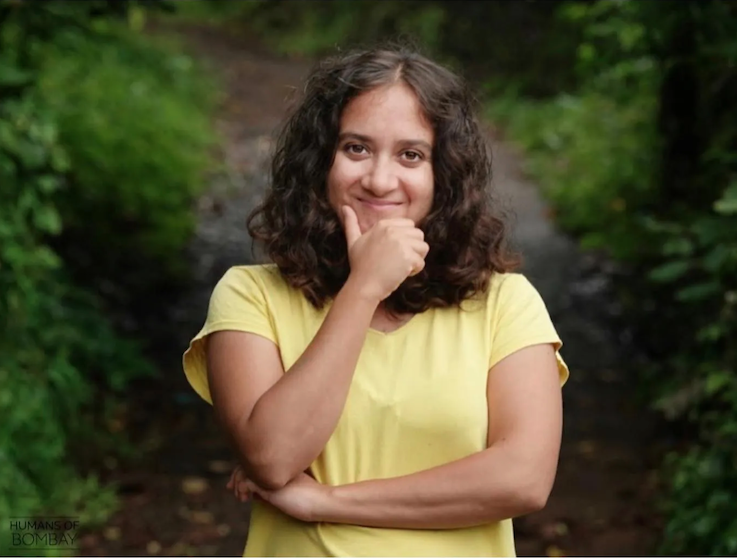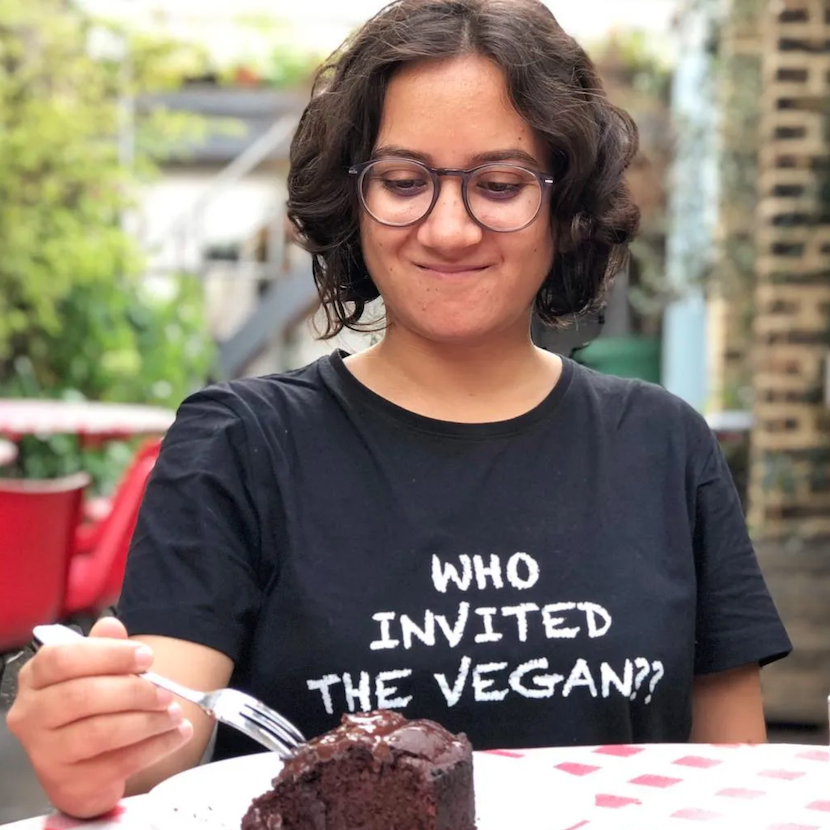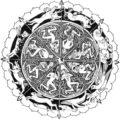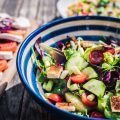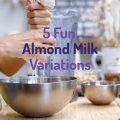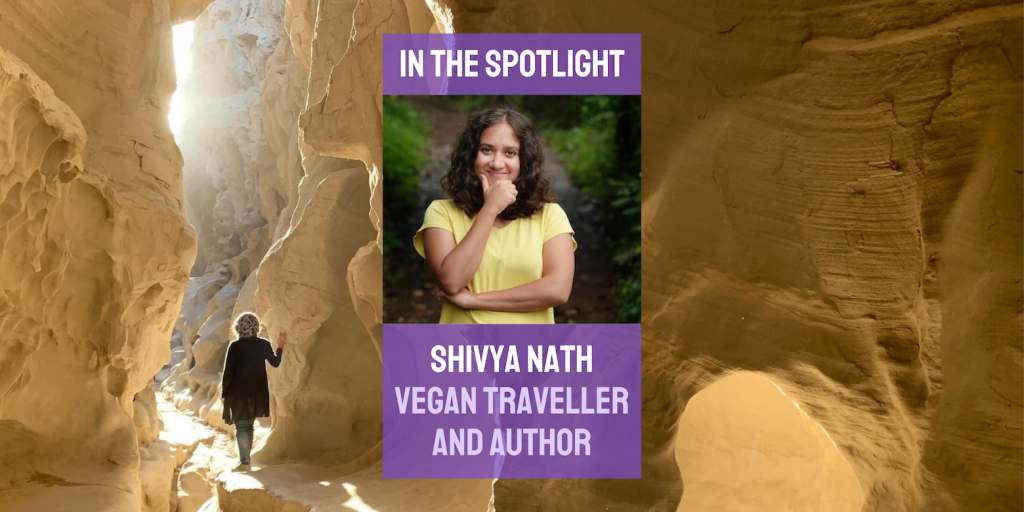
Earth Month is a month-long emphasis on the planet, April after April, all around the world. Here’s another reason and reminder for us to reflect deeply on our lifestyle choices and their impact on our planet. This time around, we had the privilege of speaking to very inspiring people who have shared abundantly about their personal journeys towards veganism, their motivations, perspectives, and insights. In this article, the spotlight is on someone truly unique! Say hello to Shivya Nath, a vegan traveller and author — We’ll let her introduce herself to you.
“I’ve been called a storyteller, environmentalist, adventurer, writer, author, consultant, vegan, drifter… but in my heart, I’m just a girl who believes that travel, if done right, has the power to change us and the world at large.”
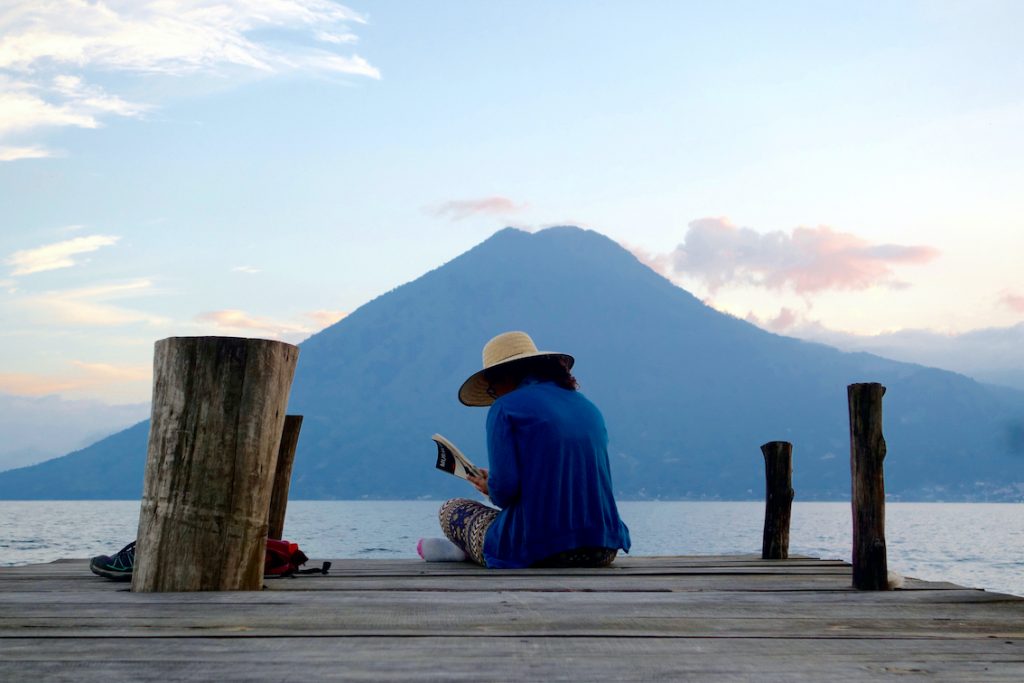
My journey began nearly a decade ago, when I quit my full time job at the Singapore Tourism Board, gradually gave up my rented apartment and sold most of my belongings to lead a nomadic life – back when #Workfromanywhere wasn’t trending and Instagram wasn’t a thing.
Living out of two bags and working (as a freelance travel writer, blogger, Instagrammer, author and consultant) on the go, I was lucky enough to spend time as a digital nomad in many different corners of the world – learning about local ways of life, experiencing our planet’s epic natural beauty, and building many unlikely friendships. The more I travelled, the more I learnt, often first hand, that humankind has a significant impact on the planet – for better or for worse, unfortunately usually for worse.
Over the years, my journey gradually introduced me to the climate crisis, the plastic pandemic, speciesism, and veganism, and the intersection of environmental conservation and social justice. I now try to use my voice to advocate for sustainable tourism, conservation, community ownership, animal rights, and climate action.”
Brimming with curiosity about her life as a full time vegan traveller, we asked her the following questions. Dive in and enjoy reading!
HC: What does veganism mean to you? Can you share a bit about your personal journey with veganism? When, why, and how did you make the switch?
S: To me, veganism is committing to causing the least amount of suffering – directly to animals, and indirectly to the planet as a whole, including all the species we share it with.
I was raised in a meat-loving family, but at the age of 12 or 13, it first struck me that in order for a chicken to appear on my dinner plate, a living, sentient being must be killed in cold blood. The shocking realisation made me turn vegetarian overnight – a transition I shared with my father.
After over a decade of being vegetarian, an unlikely bus ride in Nicaragua made me question my food choices again. As I began to read about the journey of eggs and milk products, honey and leather and silk, I slid into a deep, dark place, shocked at how simple choices I made in everyday life – eating a cheese sandwich, wearing a leather jacket – impacted the entire existence of an innocent animal.
Unwilling to accept only the things I read and watched online, I began to leverage my travels to investigate free range cattle farms, countryside wool collection centres, even silk factories. Across India, Europe, Japan and other parts of the globe, I witnessed firsthand the suffering inflicted on hens, cows, goats, sheep, horses, pigs, donkeys, fish, lobster, octopus, shrimp – all for a few minutes of human pleasure. And I gradually became aware of our own innate speciesism as humans – most of us fill with love for dogs and cats, but allow ourselves to enslave or kill other animals who can similarly feel love, pain and happiness, and have the right to live a free, natural life.
Over 6 years ago, in 2015, I decided to turn vegan – fully anticipating that I might someday have to choose between my nomadic lifestyle and my vegan diet. Much to my surprise though, I’ve survived and mostly thrived as a slow travelling vegan in several countries – including the countryside of Iran, Japan, Myanmar and Guatemala. It hasn’t always been easy, but I’ve built deep friendships, experienced places far off the beaten path and had some of the best food of my life – thanks to my choice of being vegan!
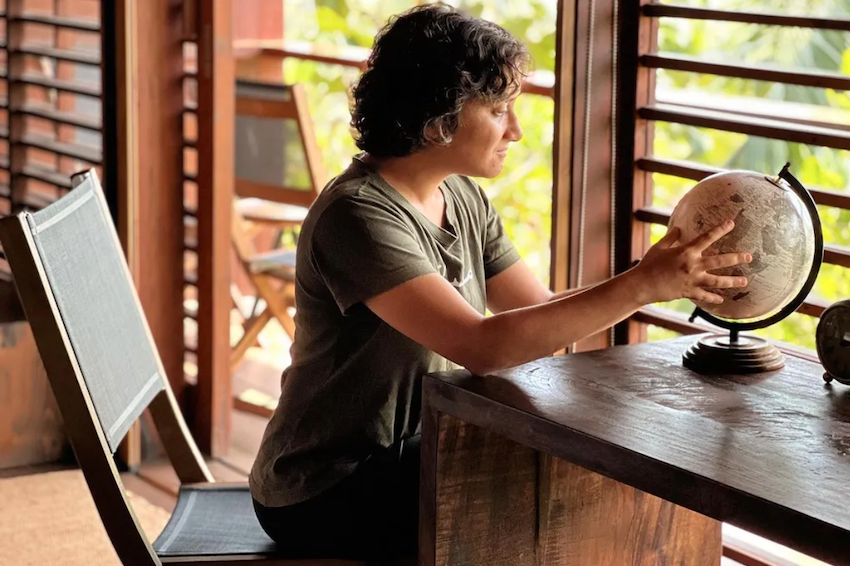
There are 5 ways that Shivya strives to be more eco-conscious as a traveller.
She…
1. Opts for land journeys and slow travel, and cuts down on long distance flying as much as possible.
2. Chooses to travel with purpose – by volunteering, travelling with community-led organisations, and participating or supporting local conservation efforts.
3. Thinks about the impact of every travel choice she makes – from transport to accommodation to how she experiences a destination to the kind of stories she shares on social media – and tries to reduce the negative impact by choosing eco-friendly transport, local-centric activities, and meaningful travel stories.
4. Travels as a vegan, even if it’s not always easy – sparing animals and the planet the suffering induced by animal-based foods.
5. Tries to minimise single-use plastic consumption as much as possible.
And she shares more responsible travel tips here.
HC: What are the top 3 eco-conscious places in the world you’ve stayed at?
S: It’s tough to pick just 3! I’ve loved exploring India off the beaten path with responsible, women-led travel companies; experiencing a wealth of environmentally conscious and community led initiatives in Cape Town; and most recently, working alongside the local community on the remote Robinson Crusoe Island, 700km off the coast of Chile!
HC: Are there any particularly eco-conscious vegan restaurants you’ve been to that you’d like to mention?
S: Where do I even begin?! I have really fond memories of Peace Food Cafe in New York City – which left me in awe of the potential of vegan food, and strengthened my resolve to go vegan without feeling like I was missing out. I love Veganarie in Bangkok – often described as “vegan food porn” – and would treat anyone who claims to hate vegan food to a meal (or dessert) there! And not a restaurant, but in Irán, I was lucky enough to meet and travel with the Iran Vegan Travel Network – and ate some of the best food of my life, prepared by vegan Iranians.
HC: You mentioned you use HappyCow all the time. Can you tell us more about what role HappyCow has played in your journey as a vegan / traveller?
S: The HappyCow app is my life jacket when I’m drowning in a non-vegan world 😉
By mapping out vegan and vegan-friendly places around the world, HappyCow has led me to some of the most incredible vegan experiences in some of the most unlikely parts of the world – and come to my rescue when I desperately needed a comforting vegan meal on my travels.
Here’s one instance I’ll never forget:
While on a travel blogging assignment on my second day in Japan, I was to join a group dinner at a restaurant in Matsumoto. After a long, outdoorsy day, the only vegan option at dinner was an unappetising salad. “Japan is not exactly vegan friendly,” the organizers told me. Disappointed and hungry, I pulled out my HappyCow app to see if there were alternatives – and slipped away on a rainy, cold night to the izakaya nearest to my location. Much to my surprise, the cozy, traditional izakaya, run by an elderly Japanese woman, offered creative vegan alternatives to almost everything on the menu!
Over a sumptuous meal of oshoyu-no-mi (black soybeans with rice mould), jaza chizimi (potatoes with wild leeks), soba gaki (kneaded buckwheat with soya sauce) and warm homemade sake, we chatted about Japan, the mountains and her love for cooking.
When I asked why she offers vegan options unlike most other restaurants in Matsumoto, she said that during the Edo period, their traditional diet was largely plant-based and meat-free! It was only in the late 1800s that people started consuming beef, horse meat and all kinds of marine animals in huge quantities. Both Buddhism and Shintoism, practiced for centuries in Japan, promote compassionate eating.
Although plant-based eating has now become an alien concept in most of Japan, the Japanese still say “ita daki mas” before every meal – an expression of gratitude towards the animals and plants whose lives were sacrificed to fill one’s plate.
HC: Which, according to you, are the most vegan-friendly cities / towns in the world?
S: The list is growing everyday, but here are some of my favourites:
Ethiopia, where influenced by the Orthodox fasting tradition, vegan food is easy to come by across the country. The beyaynetu is one of my favourite things to eat.
Central American countries like Guatemala and Costa Rica, where kidney beans, rice, tortilla, plantains and salsa picante constitute a staple meal.
Most big cities across the world – from Mumbai to Amsterdam – where the thriving vegan movement means there is something for everyone’s vegan tastebuds.
HC: What would be your advice to someone who wants to tread lightly on the planet?
S: It’s easy to consider the scale of the global challenges facing humanity and be discouraged to take individual action. But the choices we collectively make today could turn the pendulum tomorrow – and even sow the seeds of change in the mind of someone who holds a position of greater influence.
Start by asking questions, lots of them. Why is our planet faced with the worst environmental crisis? Where does the food on our plate come from? Why do we believe that some animals are meant to be loved and others destined for slaughter? What role can we, as individuals, play in an unjust world? What impact could you have if you made some changes in life, and then inspired others to do the same? What does the future of our planet and species we share it with look like?
I hope and believe the answers to some of these questions – along with some introspection – is bound to set anyone on a more compassionate, more sustainable journey.
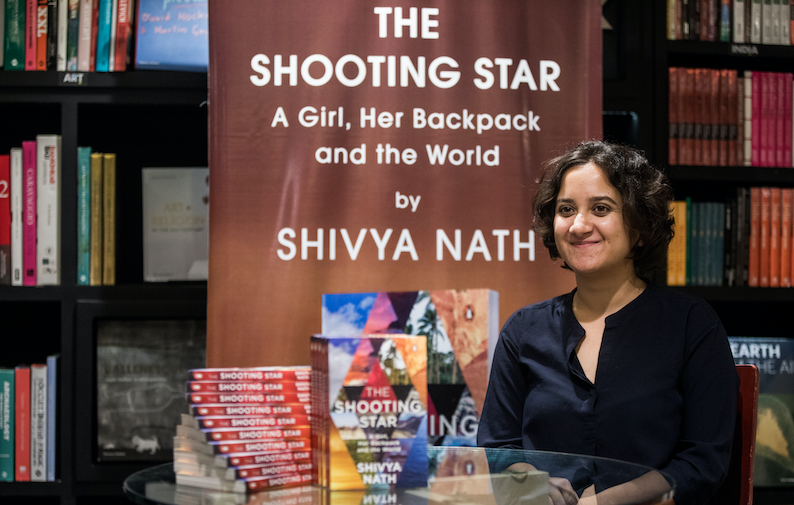
Are you filled with wonder and awe after reading this interview? Can’t blame you! That’s why Shivya is also on our list of 10 Inspiring Vegan Women You Need To Know About. To continue following her journey, visit her blog The Shooting Star as well as Instagram!
TeamCow is so thrilled to see the increasing number of beautiful humans catalysing the growth of consciousness and compassion in the world. If you found this interview inspiring, don’t miss reading these ones, too!
– Spotlight | Aviram Rozin, Founder of Sadhana Forest
– Spotlight | Erica Korff / Vegan Kween: Why It’s Easier Than Ever To Go Veg
– Spotlight | Vegan Mom Miriam Calderaro
Visit the rest of the HappyCow blog for useful vegan tips, guides, and recipes. To find delicious plant-based food near you, at any time and place, get the FREE HappyCow app. And don’t forget to follow us on Instagram, Facebook, Pinterest, and Twitter to stay in the loop!

